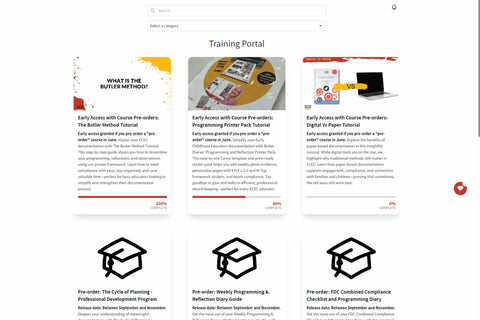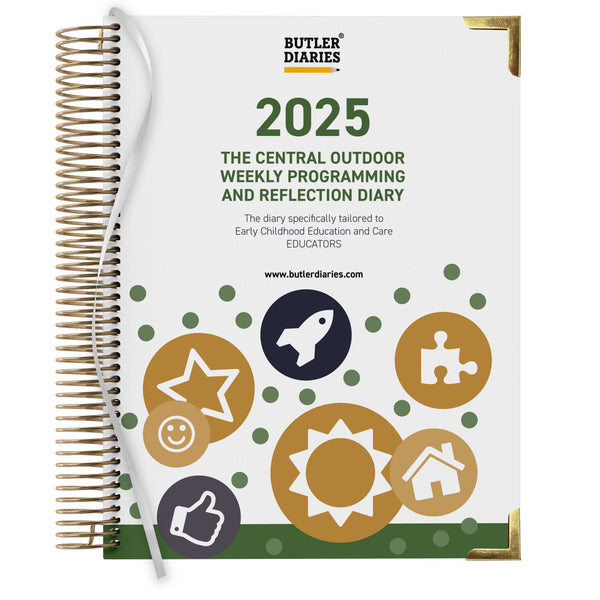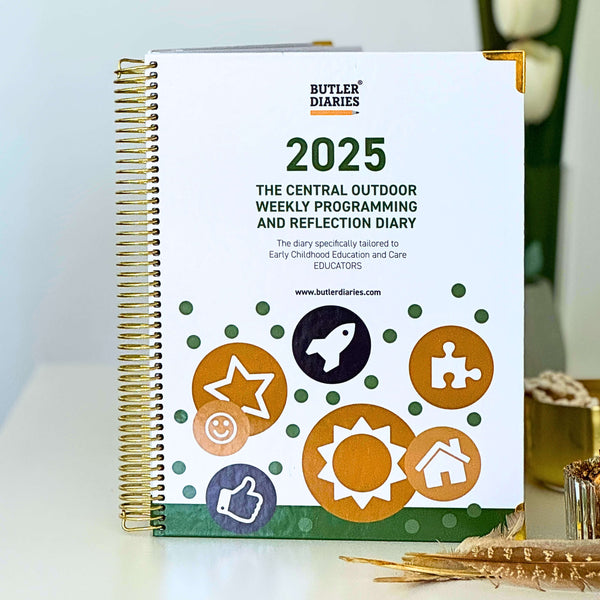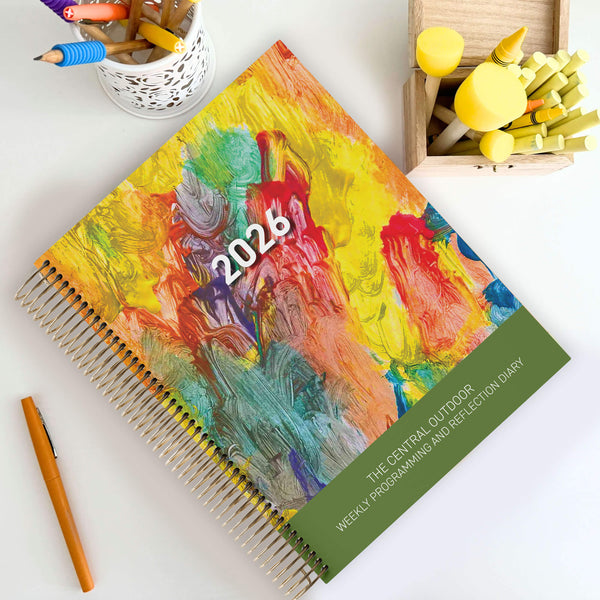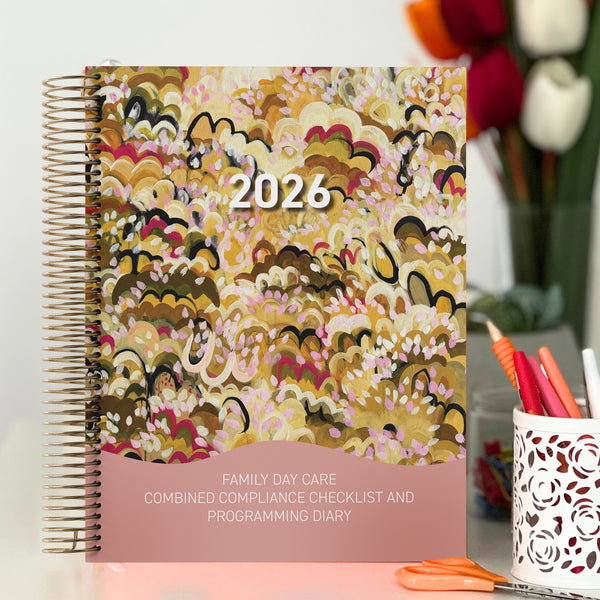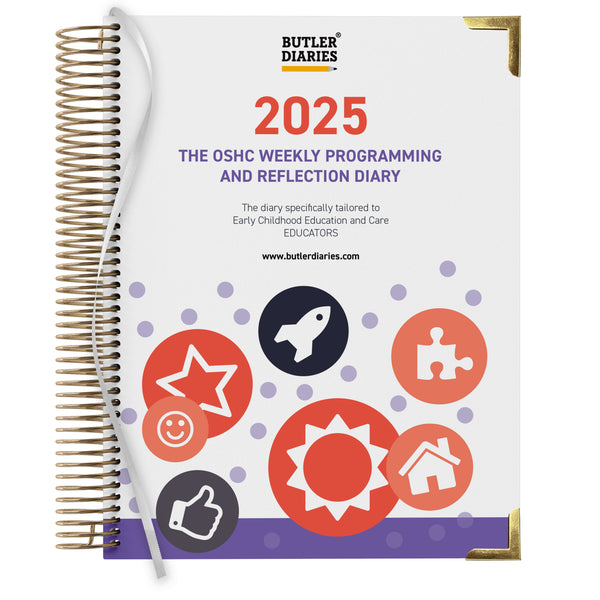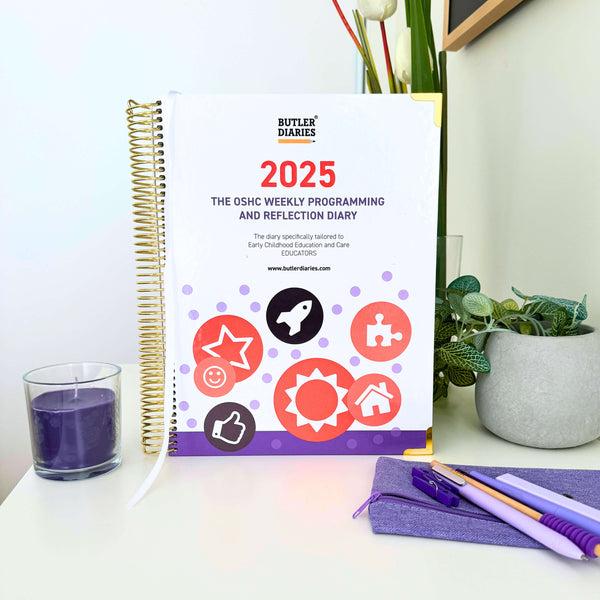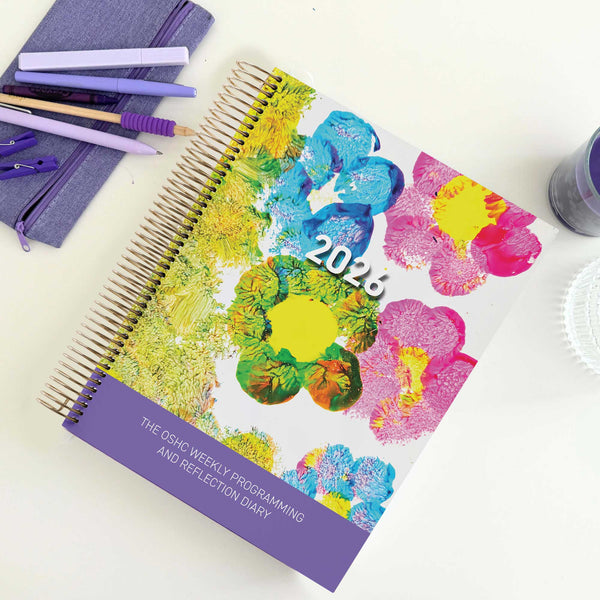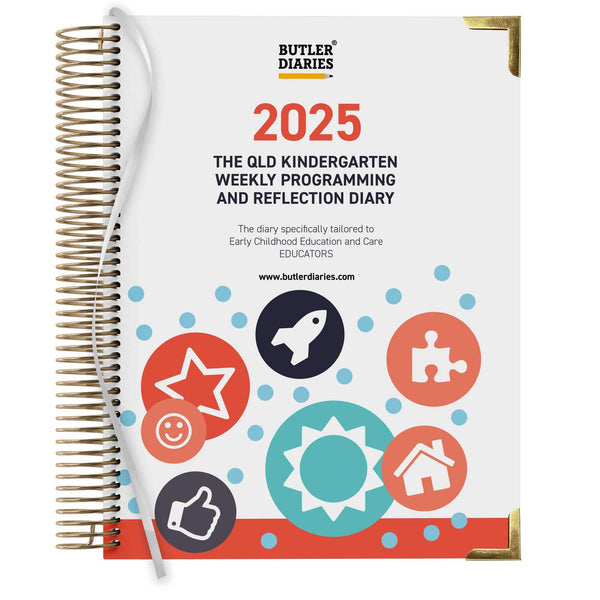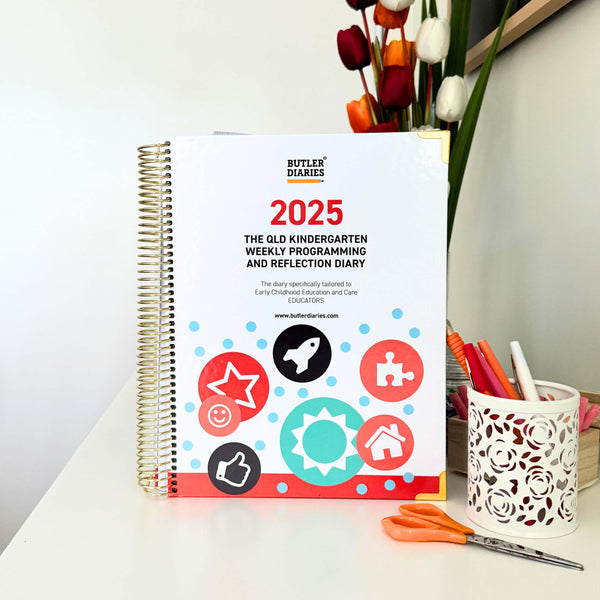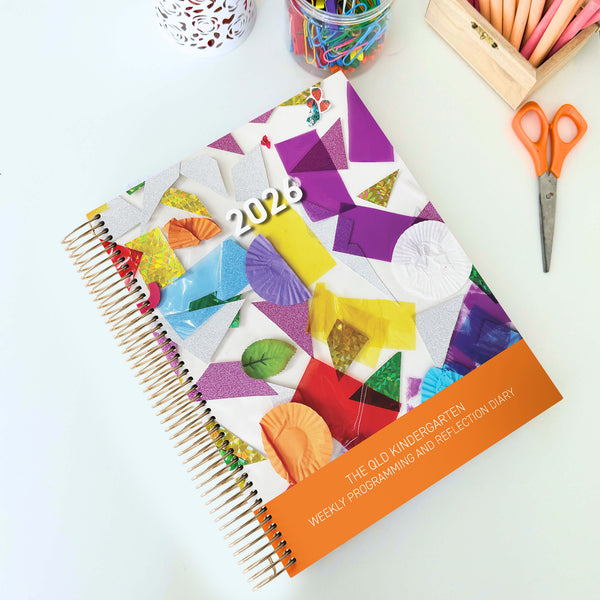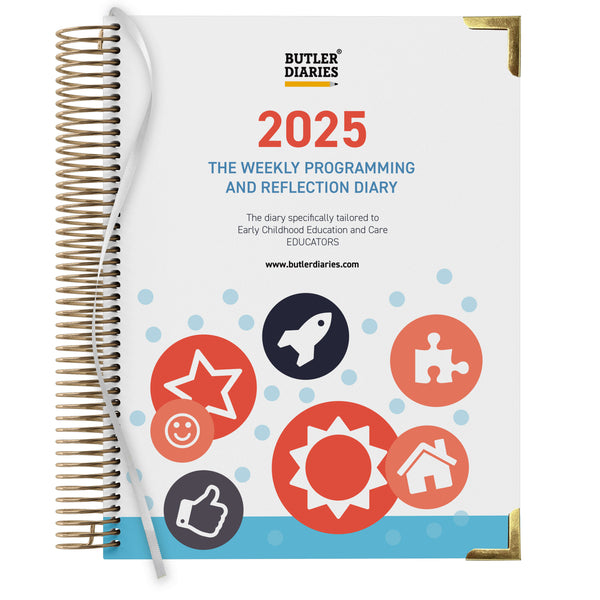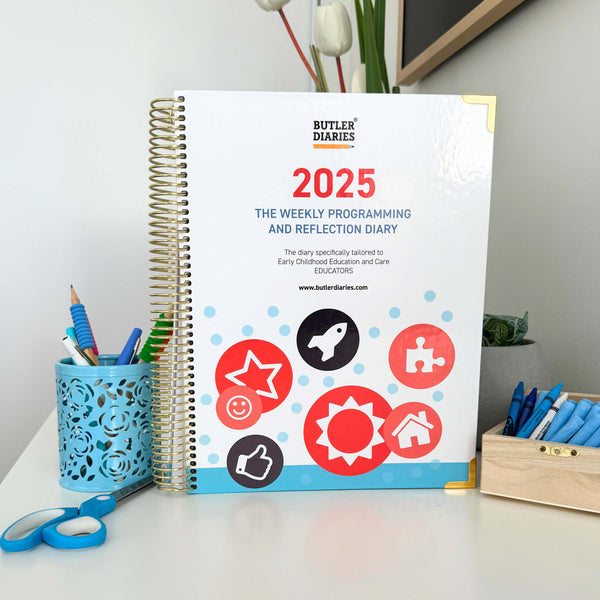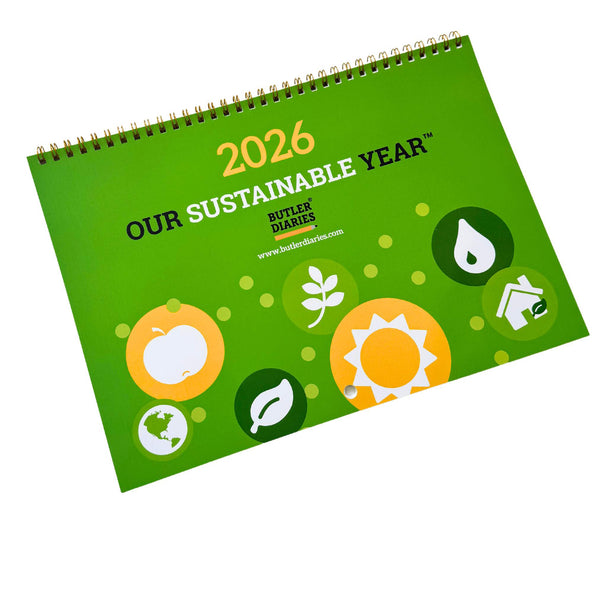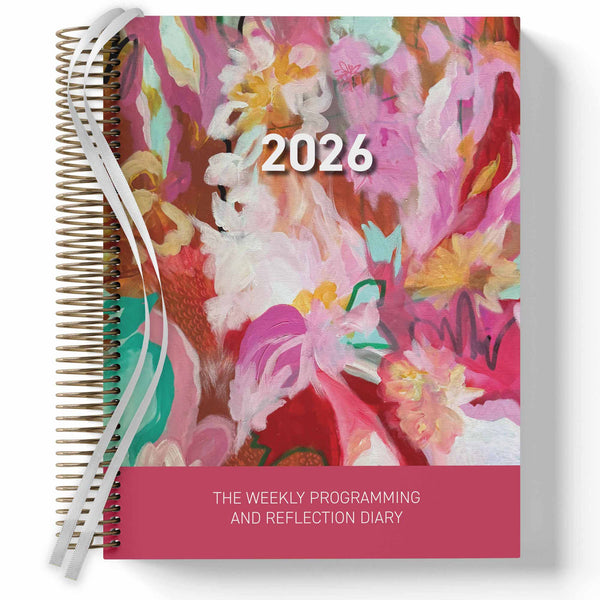EYLF V2.0 (for children aged 0–5) and MTOP V2.0 (for school-aged children 6–12) are Australia’s two key frameworks guiding early education and care. V2.0 of both became mandatory under the National Quality Framework (NQF) as of 1 February 2024. While they share a foundation of "Belonging, Being, and Becoming", they differ in focus and approach:
- EYLF V2.0 prioritises play-based learning, school readiness, and developmental milestones. It’s designed for early childhood settings.
- MTOP V2.0 focuses on leisure, autonomy, and social connections, complementing school learning for older children.
Both frameworks require educators to document, plan, and assess learning while working collaboratively with families. Tools like Butler Diaries help simplify documentation and compliance for both frameworks.
Quick Comparison
| Aspect | EYLF V2.0 (0–5 years) | MTOP V2.0 (6–12 years) |
|---|---|---|
| Focus | Play-based learning, school prep | Leisure, autonomy, social growth |
| Planning | Educator-led with child input | Collaborative with child input |
| Partnerships | Families, children, communities | Families, children, communities |
| Assessment | Developmental milestones | Independence, social connections |
| Outcomes | Identity, wellbeing, learning | Wellness, active participation |
Understanding these differences ensures tailored programming for each age group.
EYLF and MTOP Framework Overview
At the heart of both frameworks lies the principle of Belonging, Being, and Becoming, tailored to suit different age groups. Understanding their distinct purposes is key to effectively implementing them in early childhood or school-age care settings.
These frameworks are more than just guidelines - they form the backbone of Australia's quality early childhood education and care system. They highlight the importance of wellbeing, relationships, and partnerships in fostering children's learning and development, recognising that meaningful learning thrives within nurturing and supportive relationships.
The Version 2.0 updates introduced several important changes, including a stronger focus on Aboriginal and Torres Strait Islander perspectives, a shift from 'cultural competence' to 'cultural responsiveness', and an increased emphasis on sustainability and collaborative leadership. These updates reflect a deeper understanding of inclusive and culturally responsive education. Let’s take a closer look at how each framework has evolved and what it prioritises.
What is EYLF V2.0?
The Early Years Learning Framework Version 2.0 is designed for children from birth to five years and is the mandatory framework guiding early childhood education and care services across Australia. It focuses on the holistic development of young children during these crucial early years.
Play-based learning is at the heart of EYLF V2.0, recognising play as a natural way for young children to explore, discover, and make sense of their world. This approach links play directly to a child’s overall development and wellbeing.
The framework features five Learning Outcomes, which provide a structured way to document and support the diverse development of children from birth to five years. These outcomes focus on:
- Identity
- Connection
- Wellbeing
- Learning
- Communication
The framework builds on the concept of Belonging, Being, and Becoming. Updates in Version 2.0 expand these ideas: Belonging now includes connections to both local and global communities, Being reflects identity through past, present, and personal growth, and Becoming highlights children’s active participation and capabilities as citizens, even in early childhood.
While EYLF V2.0 concentrates on early childhood, the MTOP V2.0 framework caters to the needs of school-aged children.
What is MTOP V2.0?
My Time, Our Place Version 2.0 is designed for school-aged children in settings like out-of-school-hours care, vacation care, and other school-age programs. This framework takes a broader approach, addressing the wellness, learning, and development of children and young people.
Recognising that school-aged children have different developmental needs, MTOP V2.0 emphasises leisure and autonomy. It acknowledges that these children need opportunities to make choices, follow their interests, and build independence in a supportive setting.
The framework’s five outcomes reflect the comprehensive development of school-aged children, also focusing on identity, connection, wellbeing, learning, and communication.
MTOP V2.0 places an emphasis on wellness, which goes beyond traditional notions of wellbeing. This includes mental health, resilience, and building healthy relationships with peers and adults outside their families.
A key feature of MTOP V2.0 is its focus on programming that complements, rather than duplicates, school-based learning. The emphasis is on recreational, social, and personal growth activities that cater to the unique needs of school-aged children.
The framework also highlights collaborative leadership, recognising the capacity of school-aged children to take on leadership roles. This includes contributing to program planning and supporting younger children in mixed-age environments, fostering a sense of responsibility and community.
Programming Requirements Comparison
Both EYLF and MTOP, as frameworks approved under the NQF, require educators to plan, document, and assess children's learning. While they share a common foundation, their approaches differ to suit the developmental stages and needs of the children they cater to.
Common Programming Requirements
Both EYLF and MTOP highlight the importance of creating personalised plans that reflect each child’s unique needs, interests, and developmental stage. This ensures that programs are tailored to support every child effectively.
Diversity and equity are integral to both frameworks. Educators are encouraged to foster inclusive environments that embrace cultural differences, support children with additional needs, and provide equal opportunities for all children to participate and thrive.
Family partnerships are another shared priority. Recognising families as children’s first educators, both EYLF and MTOP stress the importance of working collaboratively with parents and carers. This partnership ensures a seamless connection between the home and care environments.
To meet compliance standards, educators under both frameworks are required to maintain detailed records of children’s learning journeys, program plans, and assessment practices.
Different Approaches in EYLF and MTOP
Despite operating under the same NQF guidelines, EYLF and MTOP differ in their approaches, reflecting the developmental stages of the children they serve.
EYLF focuses on play-based learning as a key driver for development. Educators design experiences that help children aged 0–5 build independence, confidence, and social skills, preparing them for the transition from home to school. The emphasis is on foundational skills and readiness for formal education.
MTOP, on the other hand, centres on leisure-based experiences that complement school learning. Programming for school-aged children acknowledges their growing capacity for decision-making and autonomy.
Lorina, Moderator stated: "The MTOP Framework acknowledges the importance of play and leisure in children's learning and development and that their learning is not limited to any particular time or place."
EYLF encourages child input in age-appropriate ways, while MTOP actively involves school-aged children in program development. This reflects their increased cognitive abilities and self-awareness, allowing them to take on meaningful roles in shaping their experiences.
Assessment practices vary as well. EYLF focuses on documenting early developmental milestones and indicators of school readiness. In contrast, MTOP assessments emphasise children’s independence, social connections, and personal interests beyond the classroom.
Side-by-Side Comparison Table
| Aspect | EYLF V2.0 | MTOP V2.0 |
|---|---|---|
| Age Group | Birth to 5 years | School-aged children (6–12 years) |
| Primary Focus | Play-based learning and school preparation | Leisure experiences and autonomy development |
| Planning Approach | Educator-led with child input | Collaborative with significant child participation |
| Learning Context | Home-to-school transition | Supports both school and home |
| Assessment Focus | Developmental milestones and school readiness | Independence, social connections, and personal growth |
| Partnership Scope | Primarily, families and communities | Families, children, communities, and schools |
| Documentation Style | Developmental observations and play documentation | Leisure experiences and choice-making records |
| Child Agency | Developing independence and confidence | Active decision-making and leadership opportunities |
| Program Outcomes | 5 Learning Outcomes focused on early development | 5 Outcomes emphasising wellness and active participation |
These differences guide educators in selecting the appropriate tools and strategies for documentation and compliance, ensuring that programming aligns with the specific needs of the children in their care. By understanding these distinctions, educators can better support children’s learning and development at every stage.
sbb-itb-706bda8
Documentation and Compliance Tools
When working with the EYLF and MTOP frameworks, effective documentation is the bridge that connects thoughtful planning to meaningful practice. It’s not just about meeting regulatory requirements - it’s about supporting children’s growth and learning in a way that aligns with these frameworks. By understanding what’s required and using the right tools, educators can shift from feeling overwhelmed by compliance to feeling empowered in their practice.
NQF Documentation Requirements
The NQF sets out documentation requirements for both regulatory and educational purposes, but it doesn’t dictate a one-size-fits-all approach. This flexibility allows services and educators to choose methods that best suit their unique environments while still meeting the standards.
Quality Area 1 of the National Quality Standard (NQS) highlights the importance of documentation in educational programs and practices. How well you document can directly influence your service’s ability to demonstrate compliance and quality.
For EYLF and MTOP settings, the focus of documentation varies slightly. Early childhood educators often record developmental milestones, play-based learning outcomes, and school readiness activities. Meanwhile, school-age care educators emphasise leisure activities, opportunities for choice, and fostering independence and social connections.
Good documentation goes beyond jotting down observations. It should include reflective insights into what children’s actions and words reveal about their thoughts and development. Additionally, documentation should serve as a tool for evaluating the effectiveness of the curriculum, fostering a cycle of continuous improvement.
Both EYLF and MTOP require records that demonstrate how educators are meeting their respective learning outcomes. For EYLF, this includes fostering children’s identity, community connections, wellbeing, learning confidence, and communication skills. MTOP documentation focuses on similar areas, with added emphasis on identity, belonging, and social development.
Butler Diaries Tools for Educators
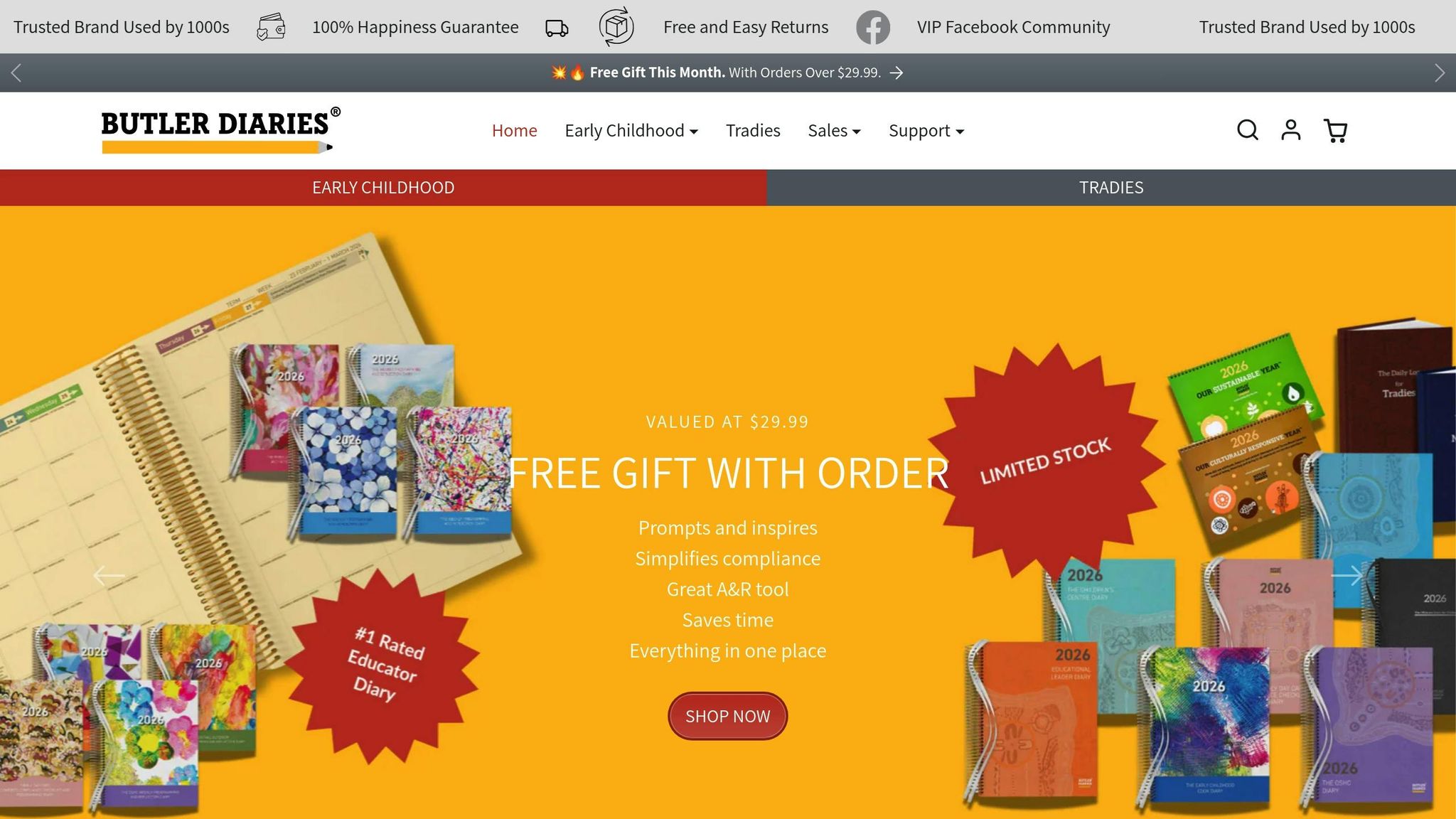
Enter Butler Diaries, offering tools designed specifically to ease the documentation process for educators working with EYLF and MTOP. These products are built to simplify compliance while encouraging reflective and meaningful practice.
Early Childhood Diaries ($69.99) are one of their standout offerings. These hardcover, spiral-bound diaries are divided into role-specific Diaries that align with the requirements of specific frameworks. They include spaces for weekly planning and critical reflections, helping educators capture the key elements, like the Cycle of Planning, needed for NQF compliance. Thoughtfully designed prompts guide educators to document not just what children are doing, but also why those moments matter.
The Wall Calendars ($29.99) provide a practical tool for long-term planning in key compliance areas. These calendars help educators map out balanced programming over weeks or months, ensuring all learning outcomes are addressed. Plus, the designs reflect an emphasis on sustainability and cultural awareness, tying into the frameworks’ broader goals.
Butler Diaries also offers Digital Courses ($9.99) to help educators get the most out of their tools. These courses provide step-by-step guidance, compliance tips, and practical strategies for integrating documentation into everyday routines without disrupting children’s experiences.
What sets Butler Diaries apart is their focus on making documentation manageable and meaningful. Their tools include checklists for tracking progress against learning outcomes, sections for recording family partnerships, and spaces for professional development notes. This structured approach ensures that no detail is overlooked, even during the busiest times.
The flexibility of Butler Diaries’ products allows services to tailor their tools to reflect their unique values and community needs. This adaptability aligns perfectly with the NQF’s recognition that quality practice can take many forms while still meeting essential standards. By blending compliance with authentic, meaningful practice, Butler Diaries helps educators focus on what matters most - supporting children’s learning and development.
How to Implement These Frameworks
To bring the EYLF and MTOP frameworks to life, focus on weaving their principles into your daily practices while enhancing your team's expertise. The goal is to make these frameworks a natural part of your routines, supported by professional development that builds confidence and understanding among educators.
Using Framework Principles in Daily Practice
The best way to integrate EYLF and MTOP frameworks is by embedding their principles into everyday interactions. Instead of viewing them as separate compliance tasks, think of them as a lens for guiding how you support children's learning and development.
For EYLF settings, plan activities that promote children's sense of identity, connection to their community, wellbeing, confidence in learning, and communication skills. In MTOP environments, focus on fostering belonging, identity, and social growth, while respecting children's independence and choices.
Everyday routines can become powerful learning opportunities. For instance, during mealtimes, encourage children to share stories that highlight their cultural backgrounds. In a school-age care setting using MTOP, involve children in planning and preparing snacks to nurture their decision-making skills and sense of belonging.
Spontaneous teachable moments are another way to apply these principles. For example, when conflicts arise, use the situation to help children build emotional regulation, develop positive relationships, or understand different perspectives - all aligning with the frameworks' goals.
Your learning environment should also reflect these principles. Arrange spaces that inspire exploration and choice, display children's work and cultural identities, and ensure materials are inclusive and accessible. A thoughtfully designed environment can visibly reinforce the values of the frameworks.
With these practices in place, the next step is building your team's capacity to implement the frameworks effectively.
 Building Educator Knowledge
Building Educator Knowledge
Confident, well-informed educators are essential for successful implementation. By tailoring professional development opportunities, you can ensure that learning is both engaging and practical.
Create opportunities for collaboration. Regular team meetings focused on the frameworks allow educators to share strategies, discuss challenges, and brainstorm solutions together. Peer observations can also be a valuable tool, giving educators the chance to see the frameworks in action and exchange constructive feedback.
Set individual goals for professional growth. Some educators may need support with documentation, while others might focus on enhancing their skills in inclusive practices or cultural awareness. Aligning these goals with the frameworks ensures both personal and professional growth.
Mentoring programs can provide ongoing support. Pair experienced educators with those less familiar with the frameworks to offer real-time guidance and practical advice during daily activities.
Encourage critical reflection as a regular practice. Ask educators to reflect on their understanding of each child, question the theories that inform their work, and consider who benefits from current approaches. Supporting further education through workshops, conferences, or advanced qualifications can also foster a culture of continuous learning.
Host in-house training tailored to your service's needs. These sessions could cover topics like planning meaningful experiences, documenting learning outcomes, or engaging families in the program.
Butler Diaries Professional Development Resources
To complement your efforts, Butler Diaries provides resources designed to support framework implementation. Their Digital Courses, priced at $9.99, offer step-by-step guidance to help educators integrate documentation into their daily routines while meeting EYLF and MTOP requirements.
These courses provide practical strategies and compliance tips, making it easier for educators to manage documentation effectively. The digital format allows for flexibility, enabling educators to learn at their own pace and revisit materials whenever needed.
Butler Diaries also offers physical tools, such as Early Childhood Diaries and Wall Calendars, which are supported by training on reflective practices, tracking progress against learning outcomes, and involving families in the process. Together, these resources and training sessions create a well-rounded support system, equipping educators with the tools and confidence to implement the frameworks successfully. By combining practical tools with targeted learning, services can meet compliance requirements while staying focused on meaningful, child-centred practices.
Conclusion
Understanding and implementing EYLF and MTOP programming is crucial for delivering quality care and education to children across Australia. These frameworks share a commitment to equity, inclusion, and setting high expectations for all children, with EYLF V2.0 focusing on early childhood and MTOP V2.0 tailored for school-aged care. Both frameworks are built around the principles of Belonging, Being, and Becoming.
Recent updates to EYLF and MTOP bring a sharper focus on cultural responsiveness and sustainability, reflecting the evolving needs of Australian communities. From 1 February 2024, all services across the country are required to use EYLF V2.0 and/or MTOP V2.0 to comply with National Regulations.
While both frameworks emphasise thorough documentation at every stage of planning, their unique learning outcomes and priorities call for customised programming strategies. This highlights the need for tools that not only ensure compliance but also streamline the process for educators.
For example, Butler Diaries offers practical solutions like their Early Childhood Diaries ($69.99), Diary Guides ($9.99) and Cycle of Planning Professional Development Training ($34.99). These resources provide clear, step-by-step guidance, making it easier for educators to track programming and meet documentation requirements effectively.
FAQs
What changes in EYLF V2.0 and MTOP V2.0 highlight their focus on cultural inclusion and sustainability?
The latest updates to EYLF V2.0 and MTOP V2.0 bring a stronger focus on cultural inclusion and sustainability, reflecting the shifting values within education. In EYLF V2.0, cultural safety and respect for diverse backgrounds take centre stage, aiming to create environments where every child feels valued and supported. It also promotes practices that encourage social, economic, and environmental sustainability, helping children connect with and understand these important concepts in practical ways.
Similarly, MTOP V2.0 places a strong emphasis on cultural responsiveness, prioritising respectful engagement with Australia's rich and diverse communities. These principles are seamlessly woven into the planning and assessment processes of both frameworks, aligning with the broader goals of inclusivity and sustainable development in early childhood and school-age care programs.
How can educators incorporate the principles of 'Belonging, Being, and Becoming' into everyday practices?
Educators can breathe life into the principles of 'Belonging, Being, and Becoming' by creating a welcoming and inclusive environment where every child feels seen and valued. This might involve establishing predictable routines, fostering strong peer relationships, and embracing the rich tapestry of cultural diversity within the classroom.
Building strong connections with families is equally important. By involving them in the learning journey and focusing on children's emotional and social wellbeing, educators can create a supportive foundation. Small yet meaningful actions - like having genuine conversations, celebrating children's milestones, and tailoring activities to their interests - can go a long way in helping children feel secure and develop a strong sense of identity.
How can Butler Diaries help educators meet the documentation requirements of the EYLF and MTOP frameworks?
Butler Diaries offers practical resources tailored for educators, designed to simplify planning, documentation, and reflection while aligning with the Early Years Learning Framework (EYLF) and My Time, Our Place (MTOP). These tools are specifically crafted to help document children's learning and development in a way that meets these frameworks' requirements.
With structured templates and intuitive layouts, Butler Diaries takes the hassle out of compliance. It ensures records are accurate, consistent, and easily accessible. By supporting reflective practices, it not only saves educators valuable time but also reduces the stress of audits and assessments by keeping everything organised and up to standard.

